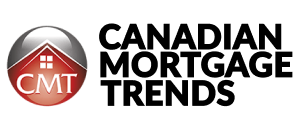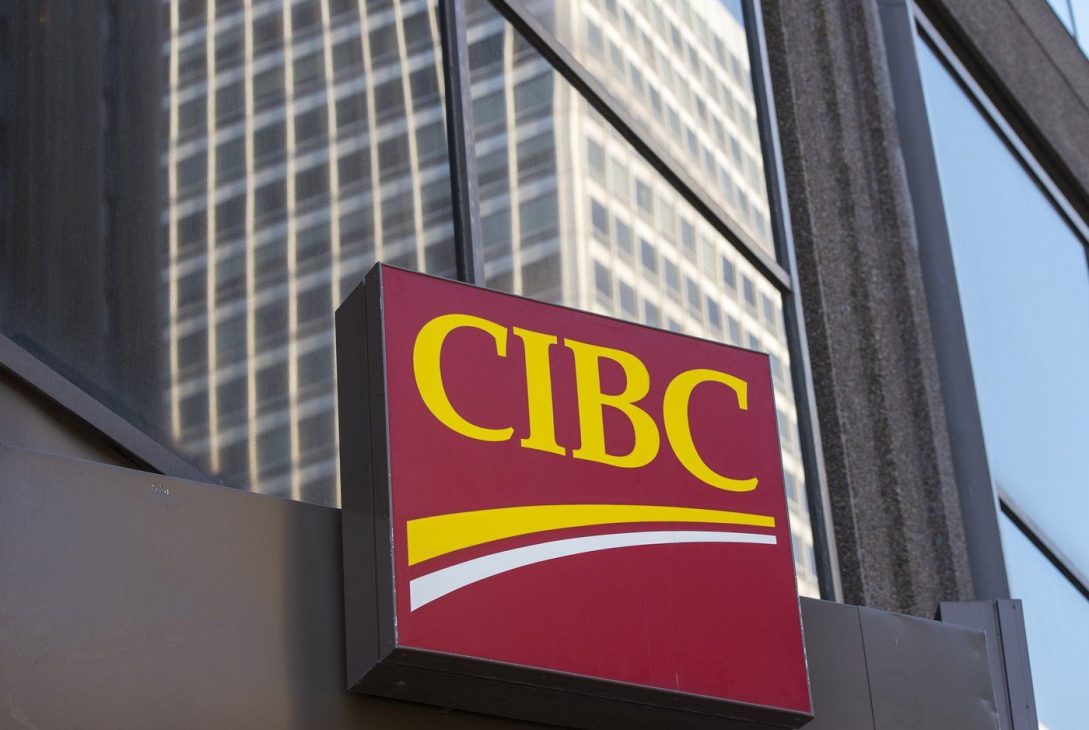CIBC, Canada’s fourth-largest mortgage lender with a 13.2% market share and a $264.5 billion portfolio, offers a comprehensive suite of mortgage solutions that blend traditional banking stability with modern digital convenience.
While its posted rates typically run higher than smaller lenders, CIBC distinguishes itself through generous prepayment privileges of up to 20% annually, specialized programs for diverse borrower needs, and a robust digital mortgage platform.
This detailed review examines CIBC’s complete mortgage lineup, from standard fixed and variable rate products to specialized offerings like the Home Power Plan and newcomer programs.
We’ll explore their competitive rates, mortgage services, and unique features that set them apart in Canadian mortgages. Whether you’re considering a new mortgage, approaching renewal, or exploring refinancing options, this guide provides essential insights into CIBC’s mortgage solutions, helping you make an informed decision about partnering with one of Canada’s oldest and most established financial institutions.
Quick links
CIBC mortgage rates
| Fixed mortgage rates | Variable mortgage rates | |
|---|---|---|
| 1-year | 5.49% | |
| 2-years | 4.79% | |
| 3-years | 4.39% | |
| 4-years | 4.39% | |
| 5-years | 4.44% | 4.75% |
| 5-years (High ratio) | 4.09% | 4.45% |
| 10-years | 6.79% |
CIBC prime rate
CIBC’s prime rate currently stands at 4.95% following a 0.25% decrease on March 12, 2025. Like other major Canadian banks, CIBC’s posted rates serve as starting points for negotiation, with rates offered to qualified borrowers potentially being substantially lower. Beyond the posted rates above, CIBC offers lower rates through “special offers” under certain conditions, like a new mortgage.
CIBC overview
The Canadian Imperial Bank of Commerce emerged from the 1961 merger of the Canadian Bank of Commerce (founded 1867) and the Imperial Bank of Canada (founded 1873), marking the most significant merger between chartered banks in Canadian history. Now operating in the United States, the Caribbean, Asia, and the United Kingdom with over 40,000 employees globally, CIBC has evolved into a comprehensive financial institution serving more than eleven million clients worldwide. The bank has maintained its headquarters in Toronto’s Financial District, which continues to operate as one of Canada’s “Big Five” banks.
CIBC’s mortgage business performs well in key urban markets, with significant exposure in the Greater Toronto Area and Greater Vancouver Area. Although posted rates typically run higher than those of smaller lenders, CIBC maintains market competitiveness through special rates and promotional offers, particularly for new mortgages.
Advantages
- Flexible prepayment options: Borrowers can make annual lump-sum payments of up to 20% and increase regular payments by up to 100% without penalties.
- Specialized programs: CIBC offers tailored solutions for newcomers, first-time homebuyers, and cross-border purchases, providing flexibility for diverse needs.
- Negotiable rates: While posted rates are high, CIBC offers competitive special rates for qualified borrowers through negotiation.
Drawbacks
- Higher posted rates: Initial rates are often higher than smaller lenders, requiring active negotiation to secure better terms.
- More restrictive closed mortgages: While CIBC’s Variable Flex Mortgage offers 20% annual prepayment privileges, its standard fixed-rate mortgage only offers 10%—paling compared to big-bank competitors, like Scotiabank.
- Service inconsistencies: Customer experiences vary significantly, often depending on the quality of the assigned mortgage advisor.
CIBC Mortgage Products and Services
Core Mortgage Products:
Fixed-rate mortgages
CIBC’s fixed-rate mortgages are available in closed, open, or convertible options. The most popular choice is the Fixed rate closed mortgage, which offers terms ranging from one to 10 years. It allows borrowers to make annual prepayments of up to 10% of the original mortgage amount without penalties and increase monthly payments by up to 100%
Customer reviews on Insureye for CIBC’s fixed-rate mortgage reveal mixed experiences. While some clients praise the bank’s efficient service and competitive rates, others express frustration with the application process and customer service. Several reviewers highlight positive experiences with quick approvals and clear communication despite reports of inconsistent information and challenges with early renewals. A notable trend in the reviews suggests that the quality of service often depends heavily on the specific mortgage advisor assigned to the case.
Variable-rate mortgages
CIBC’s variable-rate mortgage products include the Flex and Open Mortgage. Notably, the Variable Flex Mortgage features fixed payment amounts throughout the term, even when interest rates fluctuate, with the payment allocation between principal and interest adjusting automatically. This mortgage type comes with generous prepayment privileges, allowing up to 20% of the original mortgage amount to be paid annually without penalties. Additionally, borrowers can convert to a fixed-rate mortgage anytime during their term if they wish to lock in a rate.
Based on Insureye reviews, CIBC’s variable-rate mortgages reveal significant variations in customer experience. While some borrowers praise competitive rates and efficient online account management, others express frustration with service inconsistencies. The mortgage experience appears highly dependent on the assigned representative, with some clients reporting excellent support throughout the process. In contrast, others mention initial confusion and communication gaps that required follow-up.
CIBC mortgage refinance
CIBC’s mortgage refinancing program allows homeowners to break their existing mortgage and establish a new one with different terms. They can access up to 80% of their home’s appraised value—less any outstanding mortgage balance. The program offers the potential to secure a lower interest rate, consolidate high-interest debts into a single payment, and access home equity for major expenses like renovations or education.
Refinancing typically involves an appraisal fee (though sometimes waived), legal fees, and potential prepayment penalties if refinancing before your existing mortgage term ends. CIBC has streamlined its refinancing process by offering in-house legal services through title insurance companies like FNF or FCT, which can reduce closing costs for borrowers.
Specialized mortgage products:
CIBC Home Power Plan
The CIBC Home Power Plan combines a mortgage and a home equity line of credit (HELOC) into one borrowing solution. It allows homeowners to access up to 80% of their home’s value, with the HELOC portion limited to 65%. As homeowners make principal payments on their mortgage, their available HELOC credit automatically increases through a rebalancing feature.
The plan requires setup fees, including property valuation and legal documentation costs. It’s also structured as a collateral charge mortgage, which means switching lenders at renewal may require paying discharge and registration fees. While the program offers flexibility for accessing home equity and consolidating debt, it’s essential to consider whether you need immediate access or if waiting until mortgage renewal would be more cost-effective.
Newcomer programs
CIBC offers three distinct mortgage programs for newcomers. The Newcomer to Canada Program is for those with a limited credit history but sufficient Canadian income. The Newcomer to Canada PLUS Program is for permanent residents or returning citizens re-establishing their careers. Finally, the Foreign Worker Program is for those with valid work permits.
The programs are available to permanent residents who have been in Canada for five years or less or temporary residents with work permits valid for 12 months or longer. While CIBC’s newcomer mortgage programs offer flexible qualification criteria, approval times can vary significantly, and it’s recommended to get quotes from multiple lenders to ensure competitive terms.
First-time homebuyer
CIBC offers first-time homebuyers access to competitive mortgage rates and specialized support through their mortgage advisors. Their program includes access to the First Home Savings Account (FHSA), which allows tax-free savings of up to $8,000 annually toward a home purchase, and the ability to combine this with the RRSP Home Buyers’ Plan for maximum down payment potential. The bank provides additional resources through its Home Buyer’s Guide, which covers mortgage basics and helps navigate home-buying. It also offers flexible payment options, including increasing regular payments by up to 100% without penalty.
CIBC cross-border U.S. mortgage
CIBC offers cross-border mortgages for Canadians looking to purchase property in the United States. The minimum down payment is 20%. The program allows Canadians to use their credit history for qualification and includes no prepayment penalties.
Additional Mortgage Features:
- Mortgage relief: Temporary payment deferrals for up to 4 months, interest-only payments, or reverting to the original amortization schedule for those experiencing financial hardship
- Prepayment Privileges: CIBC allows annual prepayment of up to 10% of the original mortgage amount without penalty—extending to 20% on Variable Flex Mortgages.
- Convertible mortgage: A six-month fixed-rate mortgage that can convert to a closed-term mortgage of 1 to 10 years without pre-payment penalties. Variable-rate mortgages can also convert to a fixed rate at any time.
- 120-Day Rate Hold: A 120-day rate guarantee to protect your quoted mortgage rate while house hunting.
- Mortgage creditor insurance: Optional coverages for mortgage payments in case of disability, critical illness, or death.
- CIBC mortgage offers: Special rates and occasional cashback incentives for mortgage switches.
- Open Mortgages: Allow unlimited prepayment without penalties but carry higher interest rates.
- Closed Mortgages: Offer lower interest rates with restricted prepayment options and penalties for early payoff.
- Porting: Allows you to transfer your existing mortgage to a new property while maintaining your current rate and term.
Factors influencing CIBC’s mortgage rates
CIBC’s mortgage rates are shaped by several key market and individual factors. The Canadian bond market strongly influences the bank’s fixed-rate mortgages, with CIBC reporting a 90% correlation between bond yield movements and fixed mortgage adjustments. Otherwise, mortgage rates are tied to the bank’s Prime Rate, which adjusts with the Bank of Canada’s overnight rate changes. The mortgage term length plays a significant role in the pricing structure, with shorter terms generally differing from longer-term options.
Individual circumstances also heavily influence CIBC’s final mortgage offerings. The bank evaluates multiple factors, including down payment size, credit history, and debt service ratios. Due to their prepayment flexibility, open mortgages typically command premium pricing compared to closed options.
Getting the Best Mortgage Rate with CIBC
Securing the best mortgage rate at CIBC starts with building a strong financial profile, including a credit score above 680, a stable income history, and a sufficient down payment. Also note that CIBC’s posted rates serve as starting points for negotiation, with significant room for reduction through their special rates and promotional offers. Smart negotiation involves researching current market rates, obtaining competing offers from other lenders, and leveraging these during discussions with CIBC mortgage specialists.
Using competing offers as leverage while highlighting your intention to consolidate banking services can lead to better rates through CIBC’s internal pricing exception system. Consider timing your application during promotional periods when CIBC offers special rate reductions. Building a relationship with your mortgage specialist while maintaining a professional yet assertive approach during negotiations can also result in more favorable terms.
CIBC mortgage application process
Notably, CIBC offers a guide on buying a home, which is a great resource to review. It details the basics of getting a mortgage and how to start the process.
Eligibility criteria
As of January 2023, Canadian lenders like CIBC can only provide mortgages to Canadian Citizens, Permanent Residents, or Indians as defined under the Indian Act.
Income and debt service ratio
CIBC evaluates applicant income using two key metrics: the Gross Debt Service ratio (GDS) and the Total Debt Service ratio (TDS). The GDS calculates the percentage of your annual mortgage payments, including principal, interest, taxes, heat, and half of condo fees relative to your annual household income. These fees should remain less than 39% of your gross taxable income.
The TDS encompasses the GDS and all debt obligations, including mortgages and other loans, ensuring that your total debt commitments remain manageable relative to your income. These fees should remain less than 44% of your income. The bank offers a mortgage affordability calculator as a starting point.
Credit score
While CIBC doesn’t publicly disclose minimum credit score requirements, maintaining a strong credit profile is essential for securing favorable rates and terms. The bank’s guide to credit scores lists 713 as the starting point for a good credit score, whereas an excellent one begins at 741—providing clues as to their requirements. CIBC thoroughly reviews credit history during the application process, with higher scores typically resulting in better mortgage offers.
CIBC down payment
CIBC follows the updated Canadian down payment structure, effective December 15, 2024. For homes valued up to $500,000, a minimum 5% down payment is required. Properties between $500,000 and $1.5 million need 5% on the first $500,000 plus 10% on the remaining amount. For properties over $1.5 million, a 20% down payment remains mandatory, as these cannot be CMHC-insured. The insurance premiums vary based on down payment size, with rates of up to 4% with a traditional down payment.
Mortgage Pre-Approval
CIBC’s mortgage pre-approval process provides a Pre-Approval Certificate and a 120-day rate hold guarantee. The process begins online, where prospective borrowers submit initial information before contacting a CIBC mortgage specialist for personalized guidance. CIBC offers pre-qualification and pre-approval options, with pre-qualification providing quick estimates and pre-approval offering specific borrowing amounts with rate guarantees.
Should interest rates decrease during the 120-day hold period, CIBC will honor the lower rate. While pre-approval indicates the amount you may qualify for, it’s important to note that final approval remains subject to property appraisal and full documentation review.
CIBC mortgage application checklist
CIBC requires comprehensive documentation during the mortgage application process. While its mortgage document checklist (shown below) explains things thoroughly, key categories include:
- Employment and income verification
- Basic financials
- Down payment confirmation
- Property details
CIBC mortgage prepayment penalties
CIBC structures its prepayment charges based on mortgage type. Open mortgages don’t have prepayment penalties, but closed mortgages do when the annual prepayment privilege is exceeded. Fixed-rate closed mortgages use a more complex calculation, the interest rate differential, which considers the difference between your original and current rates for similar remaining terms. Otherwise, variable-rate closed mortgages simply charge three months of interest. The bank offers a mortgage pre-payment charge calculator to determine costs.
| Closed Mortgage | Open Mortgage | |
|---|---|---|
| Variable-Rate | Three months’ interest | No prepayment penalties |
| Fixed-Rate | Higher of three months’ interest, or interest rate differential (IRD) | No prepayment penalties |
CIBC mortgage renewal
CIBC provides a 150-day early renewal window, allowing borrowers to secure new rates and terms well before their mortgage matures. During this period, borrowers can explore options, including renewing with CIBC, switching lenders, or refinancing their mortgage without incurring prepayment penalties. While CIBC may offer special renewal rates to existing clients, comparing rates across lenders before renewing is recommended.
If renewing with CIBC, its digital renewal platform streamlines the process through secure SMS verification and electronic document signing capabilities. For co-borrowers, CIBC implements a coordinated approach where each person receives their email for signing, ensuring independent authorization of the renewal agreement. The renewal process allows borrowers to modify payment amounts, change payment frequency, and make prepayments without penalties.
How to e-sign Your 30-Day CIBC Mortgage Renewal
CIBC alternatives and competitors
RBC
RBC is Canada’s largest mortgage lender, offering unique products like 95% LTV vacation home financing and cross-border solutions45. While RBC’s prepayment privileges cap at 10% annually—half of CIBC’s 20% Variable Flex allowance—their 120-day rate hold matches CIBC’s protection against rising rates. The posted rates align, though both emphasize negotiation for qualified borrowers. RBC’s extensive branch network and specialized programs appeal to borrowers who prioritize accessibility over maximum prepayment flexibility.
Bank of Montreal (BMO)
BMO differentiates with a 130-day rate hold—10 days longer than CIBC’s—and matches CIBC’s 20% annual prepayment allowance but outshines for fixed-rate pre-payment privileges. Both banks offer family care payment skips, but BMO’s new BrokerEdge program expands broker access regionally, unlike CIBC’s direct specialist model. While BMO’s posted rates often exceed CIBC’s, their construction financing and U.S. Gateway Program rival CIBC’s cross-border offerings.
TD
TD permits 15% annual prepayments—5% less than CIBC’s Variable Flex Mortgage—but outshines CIBC’s 105 offered for fixed-rate mortgages. Both banks offer 120-day rate holds, though TD’s separate mortgage prime rate adds complexity that is absent in CIBC’s pricing. TD’s payment vacation feature rivals CIBC’s relief options, offering up to four months. While TD’s posted rates align with CIBC, negotiation remains critical at both institutions.
Takeaway
CIBC offers a comprehensive mortgage program with competitive rates, flexible prepayment options, and specialized products for various borrower needs. Its digital-first approach and personalized mortgage specialist support provide a streamlined experience for new mortgages and renewals. While CIBC’s posted rates may appear higher than its competitors’, its negotiable special rates and robust features like the Home Power Plan make it a strong contender in the Canadian mortgage market.
Frequently Asked Questions
Are CIBC mortgages good?
CIBC offers competitive mortgage products with flexible features like 20% prepayment privileges and a 150-day rate hold guarantee, though posted rates tend to be higher than those of smaller lenders. Their digital-first approach and specialized products like newcomer programs make them a solid choice for many borrowers.
Can I negotiate my mortgage rate with CIBC?
Yes, CIBC’s posted rates are starting points for negotiation, with significant room for reduction through special rates and promotional offers. Qualified borrowers can secure better rates by presenting competing offers and maintaining a strong credit profile.
What are the pros and cons of CIBC’s Home Power Plan?
The Home Power Plan combines a mortgage with a HELOC. While it offers flexible access to home equity and automatic rebalancing of available credit as you pay the mortgage, it requires setup fees. It uses a collateral charge that may make switching lenders more expensive at renewal.
Should I stay with CIBC or switch lenders?
Compare rates and terms across lenders, as CIBC’s special renewal rates may not be as competitive as other lenders’ offerings.
Last modified: May 13, 2025




